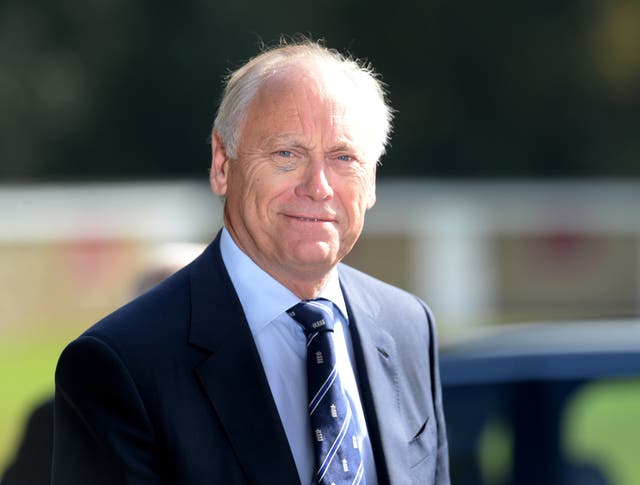Additional delays to the 2020 season and the likely postponement of The Hundred were up for discussion at a board meeting of the England and Wales Cricket Board on Thursday evening.
The domestic campaign was originally scheduled to get under way on April 12 but the spread of coronavirus and the government lockdown led to an initial deferral of seven weeks.
That ensured no cricket would be played before May 28 but it has since become clear that a return to action on that time scale will not be feasible.
The board, chaired by Colin Graves and linking up via teleconference, was presented with a series of recommendations and it is expected a new placeholder date, perhaps a month down the line, will be issued on Friday.

That will mean the first formal change of plan for England, whose first fixture of the summer was due to be an Oval Test match against the West Indies starting on June 4, but the prospect of sizeable changes to the international schedule have been priced in by decision-makers for some time.
The Hundred, the ECB's divisive new city-based competition, was slated for a big-money launch this year and although it is not due to begin until July 17 there is a growing consensus that it must be pushed back.
The 100-ball format was overtly designed to draw in new fans, with a generous pricing policy making it clear that getting families into stadiums was a major driver. It now looks virtually impossible that any such mass gatherings would be possible, while there would be a considerable cash saving if the staging costs were to be removed.
It remains unclear what kind of season will be salvageable – and one of the remaining models being considered by experts is that there will be competitive cricket on these shores until 2021 – but the case for a low-key launch this year is increasingly hard to make.
With international cricket the overwhelming priority and the Vitality Blast the most obvious way of getting each of the 18 counties back into profitable action, The Hundred will surely have to wait. Considering the overseas names who were drafted to lend their star power may well be banned from, or unwilling to, travel it would also represent a pragmatic move from a marketing perspective.
More detailed plans on a return to action will not be made until there is more clarity from government – who have ultimate sign-off – but plans over creating 'bio-secure' environments have been drawn up.
The boards of the international sides due to travel to England and Wales – the West Indies, Pakistan, Australia and Ireland – have been in regular contact with the ECB and it is understood there is a collective sense of camaraderie and flexibility surround the challenges ahead.
🗞️ | Middlesex Cricket have announced the furloughing of players and staff and company-wide pay-cuts to help protect the long-term future of the club. — Middlesex Cricket are staying at home 🏡 (@Middlesex_CCC) April 23, 2020
In a sign of the ongoing challenges being faced by the sport, Middlesex confirmed they had become the latest club to furlough players and instigate pay cuts.
The full playing squad, joined by members of the support staff, coaching team and administrative workers have been stood down in line with the government's coronavirus job retention scheme.
Additionally, all employees earning more than £27,500 have agreed a 17 per cent pay cut for the next two months, with senior management taking a 20 per cent hit.
"We are operating in unprecedented times," said chief executive Richard Goatley.
"We have to make difficult decisions that not only protect the future of Middlesex Cricket but the jobs of our employees."
"For all staff to agree voluntarily to a significant salary reduction for the next two months is testament to how invested they are in Middlesex Cricket and committed to helping the club through this crisis.
"I would like to take this opportunity to thank everyone across the club for their understanding in these difficult times."






